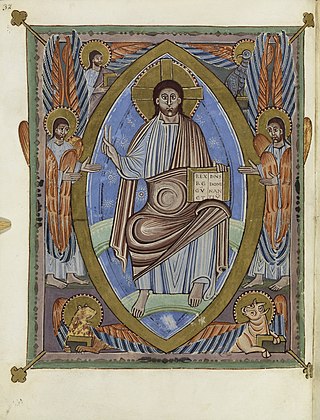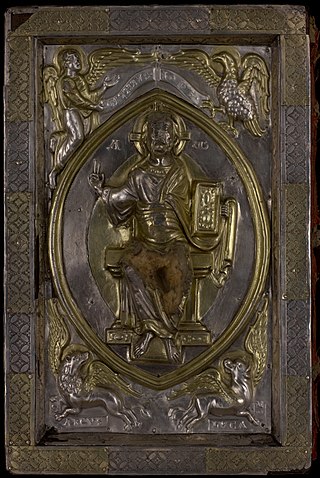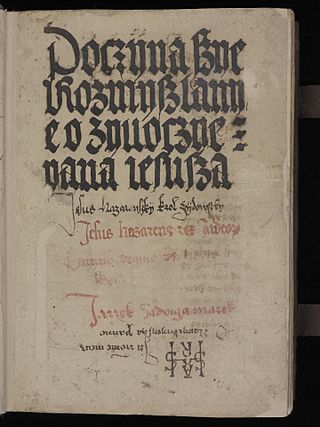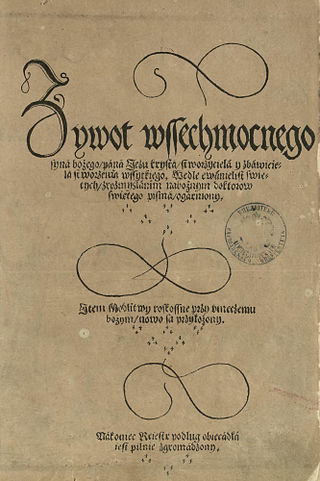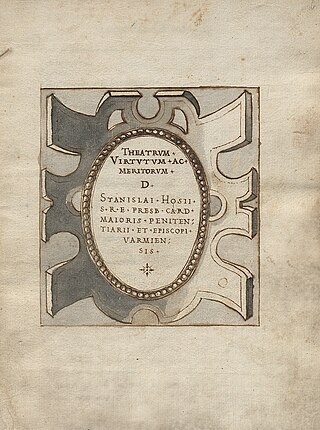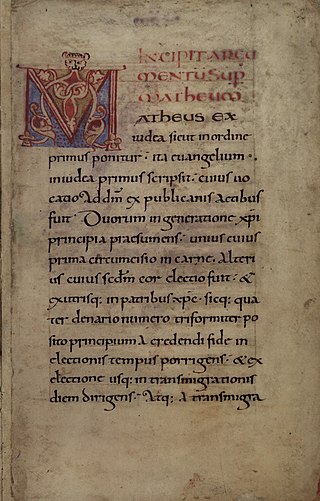 | |
| Original title | Horae Beatae Mariae Virginis ad usum Turonensem, Lat. et Gall. |
|---|---|
| Language | Latin, French |
| Genre | Book of hours |
| Publisher | Jean du Pré |
Publication date | around 1485 |
| Publication place | France |
Jan Zamoyski's Prayer Book is a French printed book of hours from around 1485. [1] [2] It contains 14 full-page "miniatures" that are woodcuts that have been painted over. The book is an early and sumptuous example of a transitional form between an illuminated manuscript and a printed book with black and white illustrations.
Contents
Jan Zamoyski's Prayer Book is the only copy in the world of the first printed edition of the French book of hours. [1] The book was published around 1485 probably in the printshop of Jean du Pré in Paris. [1] Between the sixteenth and the twentieth century, the copy was held by the library of the Zamoyski family. [1] It is traditionally identified as the prayer book of Jan Zamoyski. [1] After the World War II, Jan Tomasz Zamoyski deposited the family library with the National Library of Poland, to which it now belongs. [1] From May 2024, the book is presented at a permanent exhibition in the Palace of the Commonwealth. [3] [1]
The prayer book contains hours destined for the diocese of Tours. [4] It is printed in Gothic type on parchment. [4] A text is written in Latin and French. [1] The size of the book is 10.5x8 cm. [4] The 14 full-page figurative images preceding selected texts of the Gospels, the Hours, penitential psalms and prayers for the dead, were painted on woodcuts. [1] Other decorative elements are painted over blank spaces left in the text for this. These include three small Evangelist portraits at the start of their gospels. [4] , painted borders imitating treasure bindings with jewels, and many small initials with floral and zoomorphic motifs and plant borders on the margins of some pages. [4]
